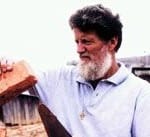 Stories of Systemic Change(This marks the third in a series of 10 Vincentian family projects that will be described by Fr. Robert Maloney, Chair of the Systemic Change initiative in the Vincentian Family.)
Stories of Systemic Change(This marks the third in a series of 10 Vincentian family projects that will be described by Fr. Robert Maloney, Chair of the Systemic Change initiative in the Vincentian Family.)
3. Stressing strong individual, family and social discipline, grounded in personal responsibility and a firm belief in Providence, Fr. Pedro (French site) has helped the people of Akamasoa (English site) to bring about lasting systemic change. On October 12, 2007, the French government named him a knight of the Legion of Honor, the highest honor given in France.
In 1989, the scene was miserable at the garbage dump outside Tananarive, the capital of Madagascar; poor people, embracing the dump as their last refuge after being driven out of cities and towns, dug through the garbage to find sustenance. Children slept covered in flies, people died and had no one to bury them, and prostitution ran rampant. It broke the heart of Fr. Pedro Opeka, C.M., to see men, women, and children living in such inhuman conditions. He began to search for a way to help them.
After some investigation and some donations from local religious communities, Fr. Pedro had an idea about how to help the people help themselves. Near the garbage dump was a granite quarry. Anyone willing to work could produce bricks, cobblestones, slabs and gravel to sell to construction companies. Laborers would earn a small wage with which to buy rice and feed their families. And so, under Fr. Pedro’s direction, the trash-dwellers banded together, beginning their work on little more than faith.
The transformation that followed amazed everyone, and a vibrant community began to develop. By listening to the each other and by setting up committees to respond to the needs of the workers – such as caring for the sick and watching the children – people once living in subhuman conditions became aware of their own dignity. Their self-confidence and respect for one another grew. The money that came in from the new work-site helped bring families together. It also enabled them to purchase construction materials to build homes. Some began to advertise themselves as builders and constructed homes for those who could not do so themselves.
Today, a community of people known as “Akamasoaâ€, or, in English, “good friends,†lives in those self-built homes. Seventeen villages have been constructed, with brick houses and paved streets. A thousand people live in each of the villages, which have stores, workshops, water fountains, lighting, schools, daycare and health centers, a hospital, administrative offices, meeting halls, sports fields, and places of worship. All the inhabitants of Akamasoa work, all their children go to school, and the community in each village runs its own local government.
The systemic change in the lives of Akamasoa’s people has caught the attention of the media. NGOs and other humanitarian aid groups have learned of it and offered their support. But Akamasoa takes great pains to continue to help families finance themselves through their own economic activities. Stressing strong individual, family and social discipline, grounded in personal responsibility and a firm belief in Providence, Fr. Pedro has helped the people of Akamasoa to bring about lasting systemic change. On October 12, 2007, the French government named him a knight of the Legion of Honor, the highest honor given in France.
Tags: Featured, Homelessness
